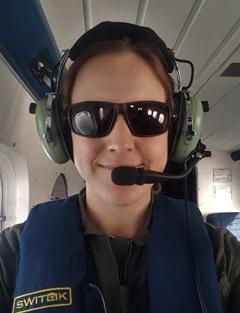-
About
- Leadership & Faculty
- News & Events
-
Academics
- Graduate
- Advanced Clinical Training
- Continuing Education
- Academic Departments
- Academic Offices
- Simulation Experiences
-
Student Life
-
Research
-
Hospitals & Clinics
- Emergency Care
- Hospital Services
-
Community Outreach
- Volunteer

Kate McPherson

Education
- B.S. in Marine Science from the University of Maine, 2011
- M.S. in Animals and Public Policy, Tufts University, 2012
- M.Sc. in Marine Mammal Science from The University of St Andrews, 2018
Biography
Current Position:
Research Technician, North Atlantic right whale conservation team at the New England Aquarium
What were you doing before entering the Master’s in Animals and Public Policy (MAPP) program?
Before entering the MAPP program, I was studying marine science at the University of Maine.
What aspects of MAPP led to your decision to join the program?
The MAPP program was the most unique graduate degree I had come across while researching programs that focused on animal welfare, policy, and conservation. During my undergraduate degree I had developed an interest in veganism and animal policy and wanted to explore those avenues further after four years of marine science.
In what ways do you use your MAPP in your current position?
The surveys and research that our team conducts on North Atlantic right whales play a vital role in management decisions for this endangered species. I also work seasonally as a naturalist onboard a whale watching vessel where I educate passengers on whale biology as well as conservation and policy, especially the Marine Mammal Protection Act.
Tell us about your MAPP project or preceptorship. In what ways did it help you form your career goals?
I was fortunate to complete my externship with Humane Society International where I worked alongside an incredible team dedicated to ending whaling, captive cetacean programs and the practice of shark finning. My mentor described her experience working both as a whale researcher and as an advocate and encouraged me to gain hands-on experience in the field of marine mammal conservation.
What did you like most about the MAPP program?
I enjoyed the diversity of animal policy issues that were presented through courses and guest lecturers. Prior to the MAPP program I had researched certain animal welfare issues on my own, but the curriculum gave me the opportunity to learn how policy ties into every aspect of human-animal interactions.
Is there anything else you would like to share with prospective MAPP students?
Take the opportunity to expand your horizons; having a broad base of knowledge is useful for whatever path you choose to follow.
MAPP Capstone Research Project: What About Fish? Why Some “Vegetarians” Eat Seafood and Implications for the Vegetarian Movement